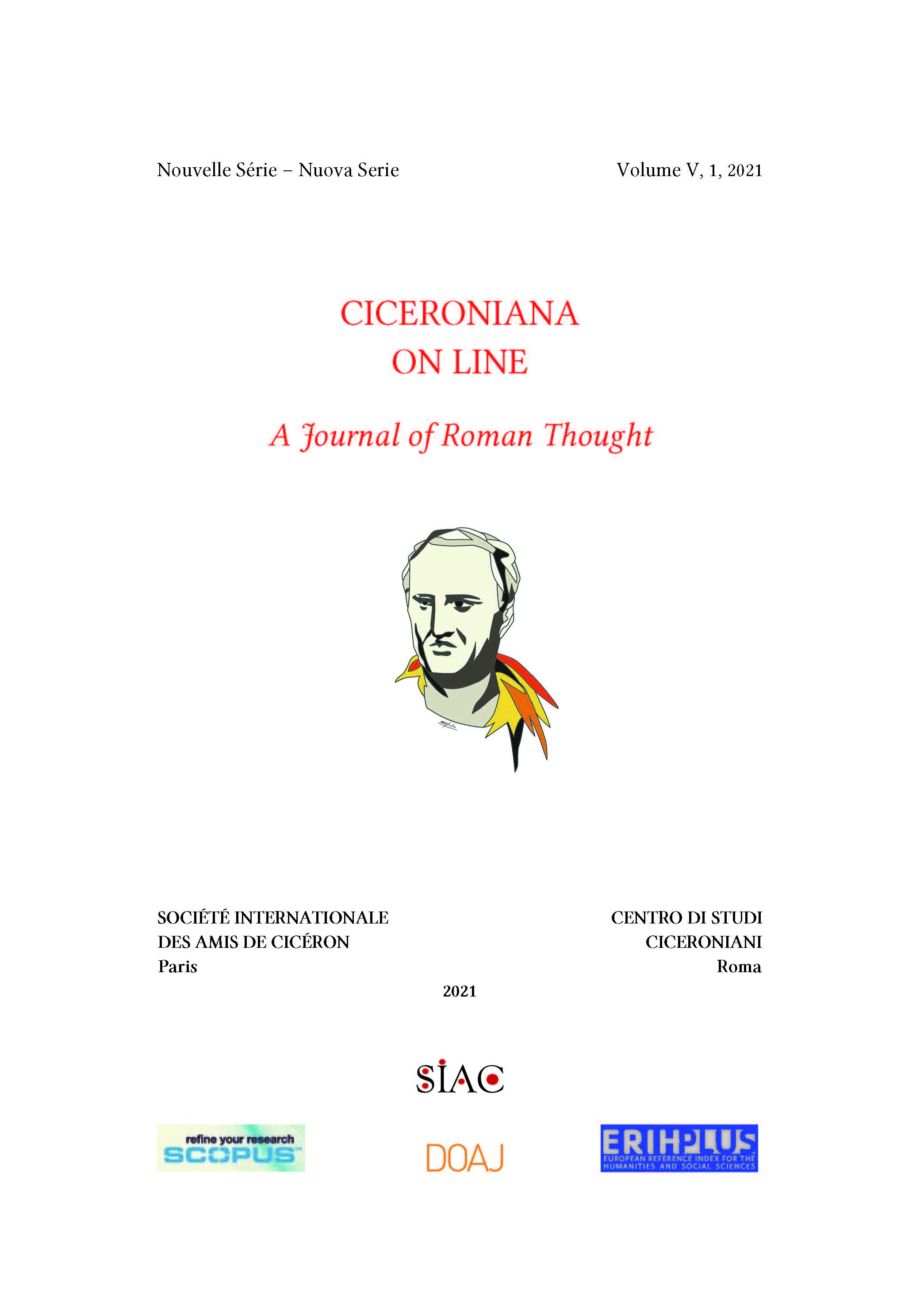The speeches of Antony and Crassus in the De oratore: forensic usus, Philo of Larissa and Antiochus of Ascalon
DOI:
https://doi.org/10.13135/2532-5353/5947Abstract
In the De oratore, Cicero’s portrait of Antonius is deeply influenced both by Cato and Academic philosophy; L. Crassus, on the other hand, is characterised by the range of his philosophical interests. The reversal of the Gorgias-Callicles relationship with reference to the Socrates-Plato relationship, the βίος σύνθετος ideal that finds its culmination in political life, the paradigm of ἐγκύκλιος παιδεία that includes philosophy – all are derived from the teachings of Antiochus of Ascalon. Cicero’s original contribution may be the synthesis of philosophy and rhetoric and the attack on the fragmentation of knowledge. Philo of Larissa exerts a clear influence on both Crassus and Cicero’s position on ὑπόθεσις-causa and θέσις-quaestio. Conceptualising rhetoric as a στοχαστικὴ τέχνη, as well as the terminology and practice of disputatio in utramque partem, are likely theoretical coordinates shared by both Philo and Antiochus.
Downloads
Downloads
Published
How to Cite
Issue
Section
License
Authors who publish with this journal agree to the following terms:
- Authors retain copyright and grant the journal right of first publication with the work simultaneously licensed under a Creative Commons Attribution License that allows others to share the work with an acknowledgement of the work's authorship and initial publication in this journal.
- Authors are able to enter into separate, additional contractual arrangements for the non-exclusive distribution of the journal's published version of the work (e.g., post it to an institutional repository or publish it in a book), with an acknowledgement of its initial publication in this journal.


 Ciceroniana On Line is recognised by ANVUR (the National Agency for the Evaluation of the University System and Research) as a CLASS A journal for the Sciences of Antiquity, Philology, Literature and History of Art (
Ciceroniana On Line is recognised by ANVUR (the National Agency for the Evaluation of the University System and Research) as a CLASS A journal for the Sciences of Antiquity, Philology, Literature and History of Art ( The journal is included in DOAJ. The DOAJ listing of the journals is available at
The journal is included in DOAJ. The DOAJ listing of the journals is available at  The journal is indexed in
The journal is indexed in  The journal has been included in ERIH PLUS. The ERIH PLUS listing of the journals is available at
The journal has been included in ERIH PLUS. The ERIH PLUS listing of the journals is available at 

